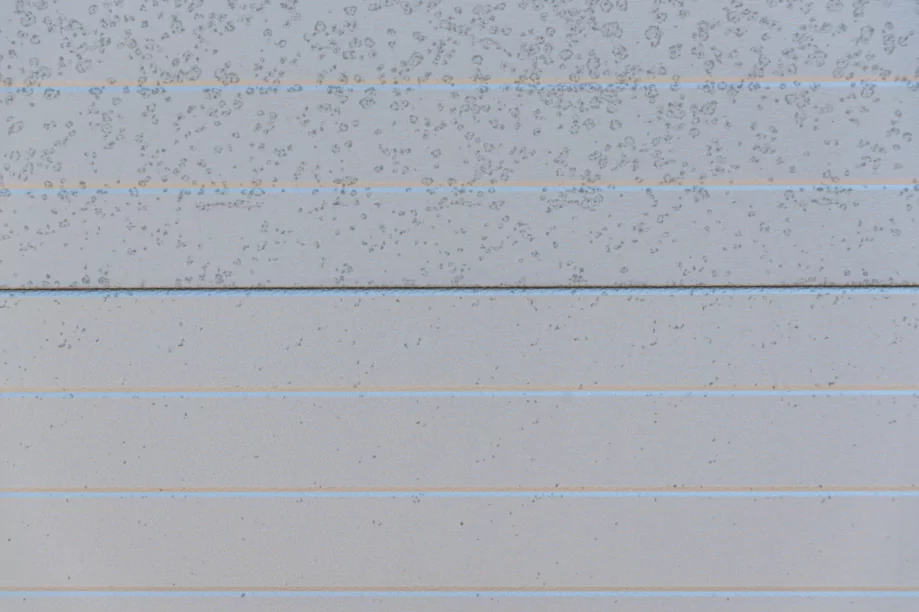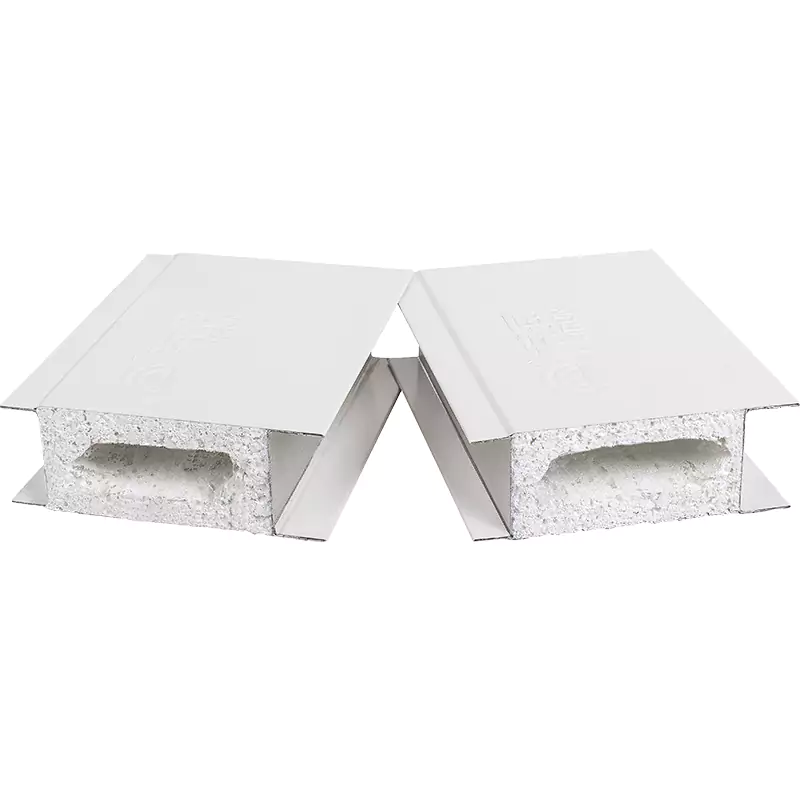Key Factors in Selecting the Right Basement Wall System
Time : May 16, 2025 View : 1347
Basement walls should combine waterproofing technology with insulation for durable and energy-efficient protection against the elements. LAIRUN’s systems feature moisture magnesium oxysulfide cores and insulating materials like rock wool to prevent water damage and mold while improving fire resistance and soundproofing properties. Installation is easy and maintenance is minimal, making these solutions ideal for areas such as labs or home basements. Their panels offer customizable choices that balance upfront costs with long-term savings. They are promoted as the option for durable and eco-friendly bases.

What Are the Common Basement Wall Systems?
Basement walls support buildings and keep them dry. They hold weight, insulate, and block moisture. Popular choices are solid concrete walls, block walls, and insulated panels. Solid concrete is strong with no weak spots for leaks. Block walls cost less but need good waterproofing. Insulated panels save energy best.
Why Does the Right Wall System Matter?
The right wall system lasts longer and costs less to maintain. It stops cracks, leaks, and mold. Insulated panels work well in very hot, cold, or wet areas. They insulate and resist moisture together.
What Materials Should You Consider for Basement Walls?
Selecting the right material for basement walls significantly impacts their performance and lifespan. Each material comes with its own set of advantages and limitations.
Are Concrete Walls a Good Choice?
Concrete handles heavy weights well. It withstands fire and can look different ways. But it soaks up water if not sealed right.
How Do Insulated Panels Benefit Basements?
These panels are strong but light. They insulate extremely well. Most have steel outside with rock wool or magnesium oxysulfide inside. They block fire and noise, too. Their ready-made design makes building faster.
For instance, top brands make magnesium oxysulfide panels. These fix weak spots in old designs while being earth-friendly.
Why Is Waterproofing Essential?
Waterproofing keeps basements dry. Without it, water weakens walls over time. Waterproof layers or coatings stop moisture completely.
How Do Basement Wall Systems Perform Under Different Conditions?
The effectiveness of basement wall systems for use is determined by factors, like how well they insulate heat and resist moisture and maintain their structure.
Does Thermal Insulation Impact Energy Efficiency?
Insulating your walls is crucial for controlling temperatures and cutting down on energy usage effectively! By incorporating insulation layers into your wall systems, you can ensure basement areas stay cozy all year round and save money on heating and cooling bills at the same time.
Can Moisture Resistance Prevent Mold Growth?
Materials that repel moisture prevent mold. Mold looks bad and harms health. Rock wool panels fight water and flames both.
How Important Is Structural Integrity?
The load-bearing capacity of basement walls must align with the overall architectural demands of the building. Systems like poured concrete walls or reinforced insulated panels ensure stability even under significant stress or seismic activity.
Can Wall Systems Be Customized for Unique Projects?
Customization allows basement wall systems to meet specific project requirements effectively while enhancing aesthetic appeal.
How Flexible Are These Systems in Design Adaptation?
Modern wall systems can be tailored in terms of thickness, width, color options, and core materials to suit diverse project needs. This flexibility ensures compatibility with various architectural styles without compromising functionality.
What Aesthetic Options Are Available?
Finished basements often serve as functional living spaces or recreational areas where aesthetics matter. Wall systems can be enhanced with decorative finishes or painted surfaces to create visually appealing interiors without sacrificing durability or performance.
For example, handmade sandwich panels offer superior sealing capabilities and customizable designs that cater to high-standard clean environments such as laboratories or hospitals.
Installation and Maintenance Considerations
How Easy Is It to Install Different Basement Wall Systems?
Different walls are installed differently. Solid concrete needs molds and drying time. This slows down building. Ready-made panels build faster. Their interlocking edges line up easily. This can cut work costs by half. It’s great for quick or tricky jobs.
For instance, magnesium oxysulfide or rock wool panels resist fire and water. They’re light and simple to use. Their ready-made style works for new buildings or updates.
What Are the Long-Term Maintenance Needs?
Maintenance matters when picking walls. Concrete needs regular sealing. Magnesium oxysulfide panels resist water naturally. This means less upkeep.
Good insulation also stops condensation. This prevents mold and makes the air healthier. It helps walls last longer, too.
Highlighting LAIRUN’s Basement Wall Solutions
LAIRUN walls mix waterproof tech with great insulation. They stay dry, control temperature, and save energy. This makes them perfect for tough jobs.
What Features Make These Products Stand Out?
How Does Advanced Waterproofing Technology Work?
LAIRUN panels have built-in waterproof layers. These block all moisture. The magnesium oxysulfide center won’t soak up water either.
Why Is High-Performance Insulation Important?
It saves power and keeps the air fresh. The insulation controls heat perfectly. Rock wool also blocks sound and flames.
Why Are These Systems Recommended by Professionals?
Experts frequently suggest these options for their durability and efficiency when it comes to installation ease due to their designs that guarantee strong seams and sturdy structural integrity vital in places like laboratories or food production sites.
For instance, magnesium oxysulfide core sandwich panels offer unparalleled performance by addressing industry challenges like poor durability and suboptimal thermal insulation.

Environmental Impact and Sustainability
Are Sustainable Materials Used in Modern Basement Walls?
New walls often use earth-friendly materials. Magnesium oxysulfide panels are safe. They don’t smell or release bad chemicals.
How Do Efficient Systems Contribute to Energy Savings?
Efficient insulation layers, within these systems, help lessen heat loss, resulting in long-term energy conservation benefits that not only cut down on utility costs but also contribute to lowering the building’s environmental impact.
Budget Planning and Cost Efficiency
Can Initial Investments Be Balanced with Long-Term Benefits?
Even though certain sophisticated wall systems may come with initial expenses s the long-term advantages they offer usually surpass the upfront costs invested in them. Their built-in waterproofing and excellent thermal efficiency help lower maintenance costs, in the run. One instance is when artisanal sandwich panels provide secure joints and improved sealing in contrast to machine-manufactured options. Even though they may have a higher price tag, their longevity makes them a financially wise decision, over time.
How Do These Systems Deliver Value Without Compromising Quality?
Value is found in blending efficiency with pricing structures. Multifaceted layouts cut down on labor expenses during setup while upholding excellence throughout ventures. Furthermore, personalization choices enable you to adapt the structure to needs devoid of incurring avoidable costs. Consider opting for options such as sandwich panels with a magnesium oxysulfide core to strike a harmonious balance between cost effectiveness and top-notch performance.
FAQ
Q1. What makes magnesium oxysulfide panels suitable for basements?
A: Magnesium oxysulfide panels are lightweight yet durable, offering excellent fire resistance and moisture protection without halogen return issues.
Q2. Are insulated panels more expensive than traditional concrete walls?
A: While initial costs may be higher, insulated panels reduce long-term expenses through lower maintenance needs and improved energy efficiency.
Q3. How do I determine the right core material for my project?
A: Rock wool is ideal for soundproofing and high-temperature resistance, whereas magnesium oxysulfide excels in lightweight applications requiring superior durability.






